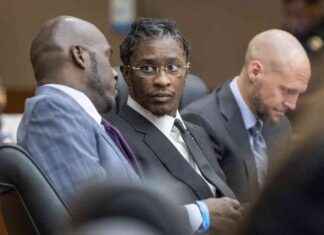The trial against the 28 ultras who attacked and assaulted the protesters of the October 9, 2017 march was suspended this morning when an agreement between the parties seemed close. The disagreement of the defenses with the restraining orders that the prosecutor had included in the agreement with the accused has motivated the president of the Chamber to have decided to wait until March.
Almost all of the accused ultras had reached an agreement with the prosecution in which they acknowledge the crimes of which they are accused, including hate, but they managed to avoid prison by seeing the agreed sentences reduced. Specifically, 26 of the 28 defendants accepted sentences of between 1.7 and 1.4 years compared to the between 3 and 7 years requested by the prosecutor and between 5 and 11 years requested by the private accusations.
In addition, each one agreed to pay 1,700 euros in civil liability for the injuries and damage caused to the equipment of the informants they attacked. Two of the accused, Pepe Herrero and Paco Moreno, were the only ones who did not accept this agreement with the prosecution.
However, some defenses have said they are unaware of the point of the conformity agreement that referred to the prohibition of approaching within 300 meters of nine points in the city of Valencia, which for practical purposes would mean, as one of the defenses has pointed out, , practically exile from Valencia.
The prosecutor, Susana Gisbert, has defended that this point was already included and that the parties had been informed. After a recess, the judge decided, visibly angry, to suspend the trial and set aside several days for next March 2024.
In her provisional qualification, the prosecutor accused the defendants of hate crimes, public disorder, coercion, minor threats, injuries and mistreatment. The private accusations are brought by the Comissió 9 d’Octubre, organizer of the demonstration, and the Movement against Intolerance.
The attacks that are being judged occurred on the afternoon of October 9, 2017, on Valencian Community Day. Before the start of the demonstration called by the Comissió 9 d’Octubre, a group of ultras attacked the protesters, overcoming the police barrier while they were recorded by television cameras. The attackers also beat up journalists and photojournalists who were following the event and a multitude of people who were in the area.
The prosecutor highlights in her story that these attacks were preceded by an appeal through social networks. “I want to live a historic moment, the first year without Estelada for Valencia on 9-O. Do I count on you? Pza San Agustín 9-X-17,” said one of the accused. This call was responded to by a large group of people who gathered on the morning of October 9 next to the Mestalla football field behind a Yomus CN10 banner: “The congregants headed to the center of the city with the purpose of hindering development.” of the demonstration and confront those who attend because of their ideology,” maintains the prosecutor.
The story continues to specify the actions of its protagonists. Thus, it is noted that in the afternoon, one of the accused, known as El Alfarrasí, who had held the leadership of the defunct Valencia CF Yomus club, entered the Plaza de San Agustín, the starting point of the demonstration, along with other people singing songs, shouting and performing the salute that consisted of keeping their arm raised, typical of fascist and neo-Nazi movements.
“The actions of these people, who rebuked the protesters and rushed towards where they were, despite the police cordon, caused the cordon to finally give way. This gave rise to a stampede that made normal progress impossible at all. of the summoned demonstration”.
In summary, the story continues, throughout the march through the streets of “They were aborted by the police. We had to guard them and stand between them and the attackers throughout the entire journey.”








